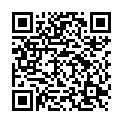|
|
|
| Module code: FT24.1 |
|
|
2V+1U+1P (4 hours per week) |
|
5 |
| Semester: 3 |
| Mandatory course: yes |
Language of instruction:
German |
Assessment:
Written exam 150 min.
[updated 30.09.2020]
|
DFBME-314 (P610-0328, P610-0546, P610-0566, P610-0567) Mechanical Engineering, Bachelor, ASPO 01.10.2019
, semester 3, mandatory course
FT24.1 (P242-0079, P242-0080, P610-0402) Automotive Engineering, Bachelor, ASPO 01.10.2015
, semester 3, mandatory course
FT24.1 (P242-0079, P242-0080, P610-0402) Automotive Engineering, Bachelor, ASPO 01.04.2016
, semester 3, mandatory course
FT24.1 (P242-0079, P242-0080, P610-0402) Automotive Engineering, Bachelor, ASPO 01.10.2019
, semester 3, mandatory course
|
60 class hours (= 45 clock hours) over a 15-week period.
The total student study time is 150 hours (equivalent to 5 ECTS credits).
There are therefore 105 hours available for class preparation and follow-up work and exam preparation.
|
Recommended prerequisites (modules):
None.
|
Recommended as prerequisite for:
FT20 Electric Vehicle Drive Systems
FT21 Vehicle Combustion Engines
FT29 Compulsory Elective
[updated 29.07.2024]
|
Module coordinator:
Prof. Dr. Hans-Werner Groh |
Lecturer:
Prof. Dr. Hans-Werner Groh
[updated 12.03.2025]
|
Learning outcomes:
After successfully completing this course, students will be familiar with the basic concepts of control engineering and will be able to:
- apply their basic knowledge, as well as theoretical and mathematical contexts to the field of control engineering.
- solve unknown control engineering problems in control loop design and stability testing independently and with independently selected methods.
- apply what they have learned to new control engineering problems in the field of automotive engineering.
[updated 30.09.2020]
|
Module content:
- Introduction to systems theory: Basic terms and principles of control engineering, problems and examples from different areas
- Laplace transform:
Transfer function and frequency response
- Modeling, signal flow diagrams, analogies
- Response characteristics of controlled system and standard controllers (P,PI, PID, PDT1)
- Static and dynamic behavior of control loops
- System analysis with Bode plots (frequency response) and locus: Synthesis of closed control loops, control behavior, permanent control deviation, disturbance behavior
- Stability analysis:
pole-zero distribution, Routh-Hurwitz stability criterion, Nyquist stability criterion
- Controller design with the root locus method
- Linear and time-discrete controls, stability of time-discrete systems
- Simulation with MATLAB/Simulink
[updated 30.09.2020]
|
Teaching methods/Media:
Lecture notes and lab experiment
[updated 30.09.2020]
|
Recommended or required reading:
- Unbehauen, H.: Regelungstechnik: Klassische Verfahren zur Analyse und Synthese linearer kontinuierlicher Regelsysteme, Fuzzy-Regelsysteme, 15. Auflage: Vieweg + Teubner Verlag Wiesbaden, 2008, ISBN: 978-3-8348-0497-6 (Print), 978-3-8348-9491-5 (Online)
- Lutz, H.; Wendt, W.: Taschenbuch der Regelungstechnik mit MATLAB und Simulink, 9. Auflage, Harri Deutsch Verlag, Frankfurt am Main, 2012, ISBN 978-3-8171-1895-3
- Föllinger, O.: Regelungstechnik : Einführung in die Methoden und ihre Anwendung, 10. Auflage, Hüthig Verlag, Heidelberg, 2008, ISBN: 978-3-7785-2970-6
- Samal, E.: Grundriss der praktischen Regelungstechnik, 17., verbesserte und erweiterte Auflage; R. Oldenbourg Verlag München, 1991, ISBN 3-486-21923-5
[updated 30.09.2020]
|


